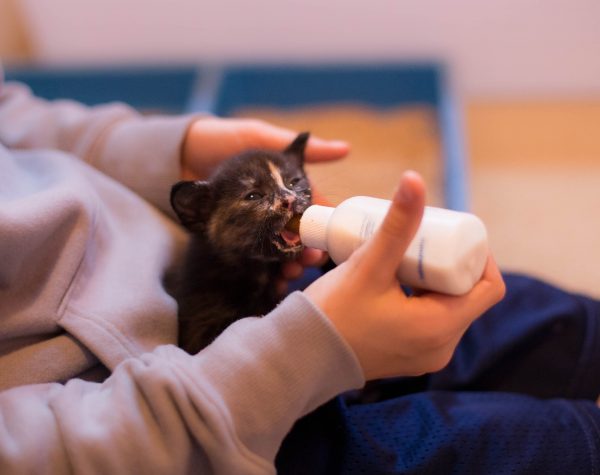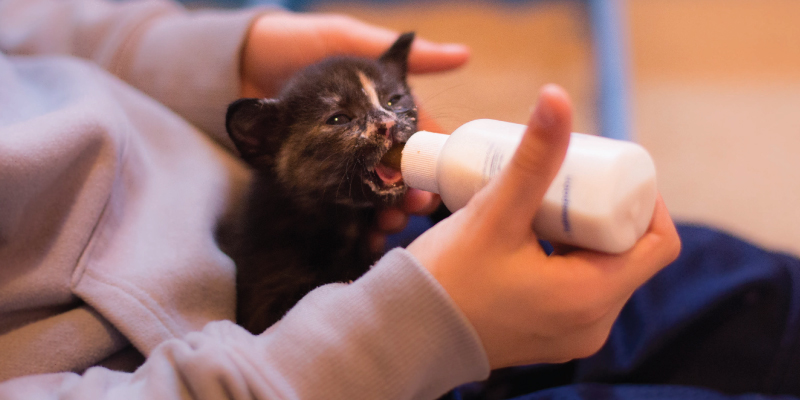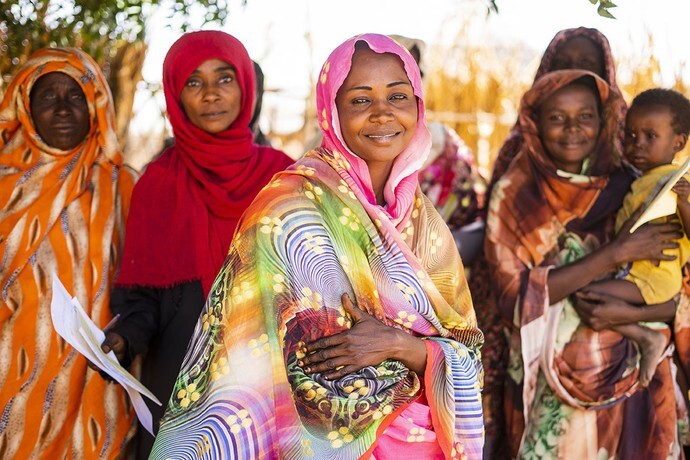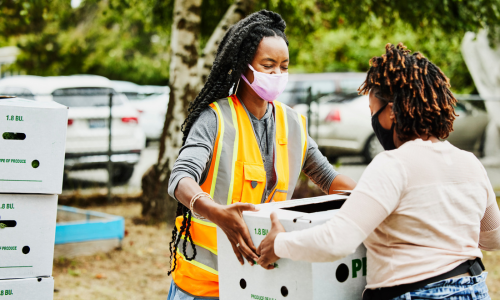Charity Spotlight: This blog post is part of our charity spotlight series and was provided by Ellen from the Vancouver Orphan Kitten Rescue Association (VORKA), as part of our ongoing charity spotlight series.
Many years ago, Vancouver Orphan Kitten Rescue Association (VOKRA) co-founders Karen Duncan and Maria Soroski were volunteers at the SPCA when litters of kittens kept coming in without moms. They quickly learned how to bottle feed and fielded requests for their services up to twice a day during kitten season. If you’re picturing an actual orphanage filled with rows of cat beds and endless litters of kittens, you wouldn’t be far off. At times their own beds were piled high with kennels full of kittens requiring 24-hour care.

Eventually, Karen and Maria branched off on their own and realized the reason for all the motherless kittens was that no one had figured out how to trap the feral moms. Once they began trapping them, the need for bottle feeding was greatly reduced.
Founded in 2000 because of kittens that were orphaned and without moms, VOKRA began as a means to provide crucial care that would replicate the feeding and love a mom cat would normally provide. Although we’ve since branched out and now also rescue adult cats, we still specialize in bottle feeding which keeps us extra busy.
It’s Not All Purrfect
Though bottle feeding kittens may sound like it’s all purrs, cuddles and explosions of cute, considering that most litters reach upwards of five, it’s no small feat. Newborn kittens require constant tending to and must be fed every two hours. They have to be kept warm at all times through the use of blankets and heaters, they need to be burped and bathed, and you must stimulate their excrements. Basically, you need to replace their mom in every way possible, short of becoming a cat yourself.
While keeping kittens with their mom is always the preference, bottle feeding is at times a necessity. Sometimes it may only be for a short period, temporarily feeding them until their mom is located or merely helping a mom cat with her extra large litter. Other times we may be able to use surrogate moms instead, adding orphaned kittens to another mom’s litter. We trap feral moms whenever possible, using the scent of her kittens’ urine or fur to lure her in. But in cases where the mom is never found or has passed away, bottle feeding is the only hope of the kittens’ survival.
Receiving an average of 15 litters a year that require full-time bottle feeding, we have a handful of dedicated volunteers who provide constant care and attention to ensure these little ones survive. Around the clock care is necessary and some volunteers even take their tiny wards to work. In the past Ellen Keiser, a teacher, took her bottle fed babies to school and fed them during recess and lunch as her class looked on for some firsthand lessons in cat rescue. At times, volunteers share the duties between them, “babysitting” if one of them needs a break.
Even with the best possible care, survival rates are a bit lower for bottle fed kittens. They’re more prone to illness and not all of them make it. To be a bottle feeder volunteer requires not only time, patience, flexibility and the ability to do without sleep, but also the strength to handle the potential for heartbreak.
“You need to prepare yourself for the loss, but also for the celebration that so many do make it due to your efforts,” said Ellen.
In 2015, foster mom Tania Hennessy cared for more bottle feeders than she ever had before and says she becomes especially attached to them. For her, watching them grow up and find their forever homes is worth the undertaking.
Bottle fed kittens sleep a lot and after two weeks you can begin to train them to use their litter boxes. Eventually you’ll find small puddles of poop, which to a seasoned cat rescuer like Karen is “quite exciting”.
As the kittens grow, they become among the sweetest and sociable of cats since growing up among humans is all they’ve known. In fact, they consider their bottle feeding human to be their “real” mom.
“My favorite part of caring for bottle feeders is the day when their eyes open and they finally look back at you for the first time,” said Tania. “Paired with the happy purrs of a full belly at 3 a.m., it’s heart melting!”
Seeing bottle fed babies transform into active and healthy kittens is truly a reward like no other.
To learn more about the Vancouver Orphan Kitten Rescue Association, or to make a donation, visit their Charity Profile Page.
Updated on November 1, 2024
Donate Now




